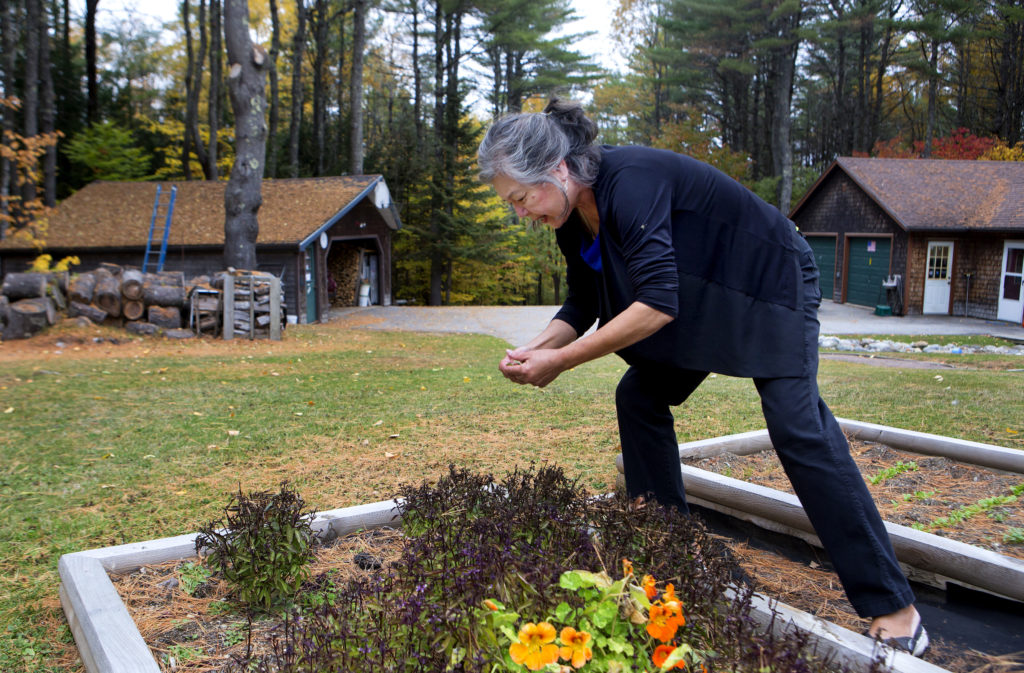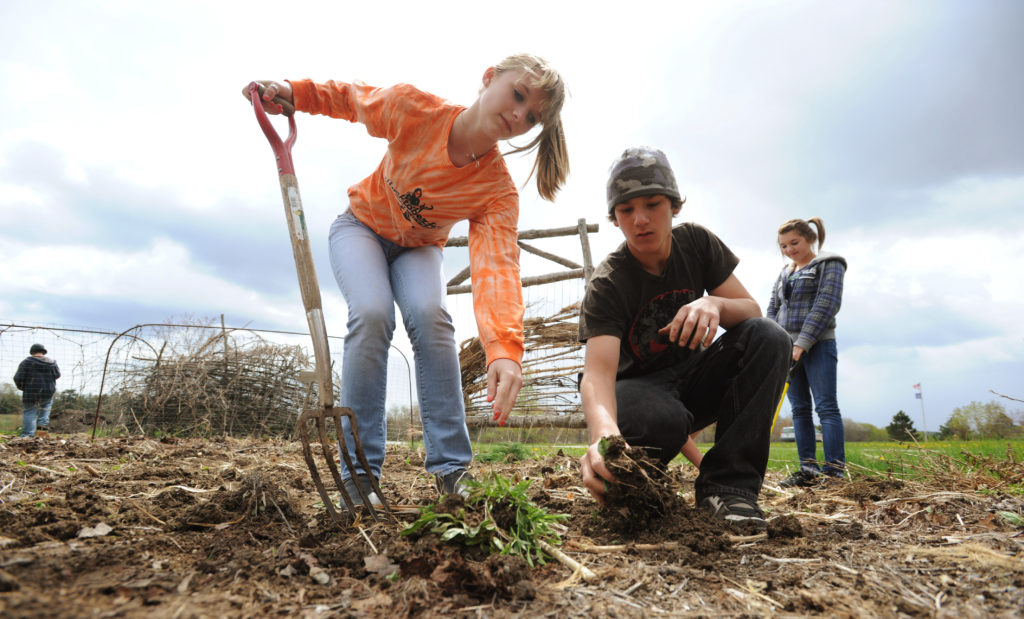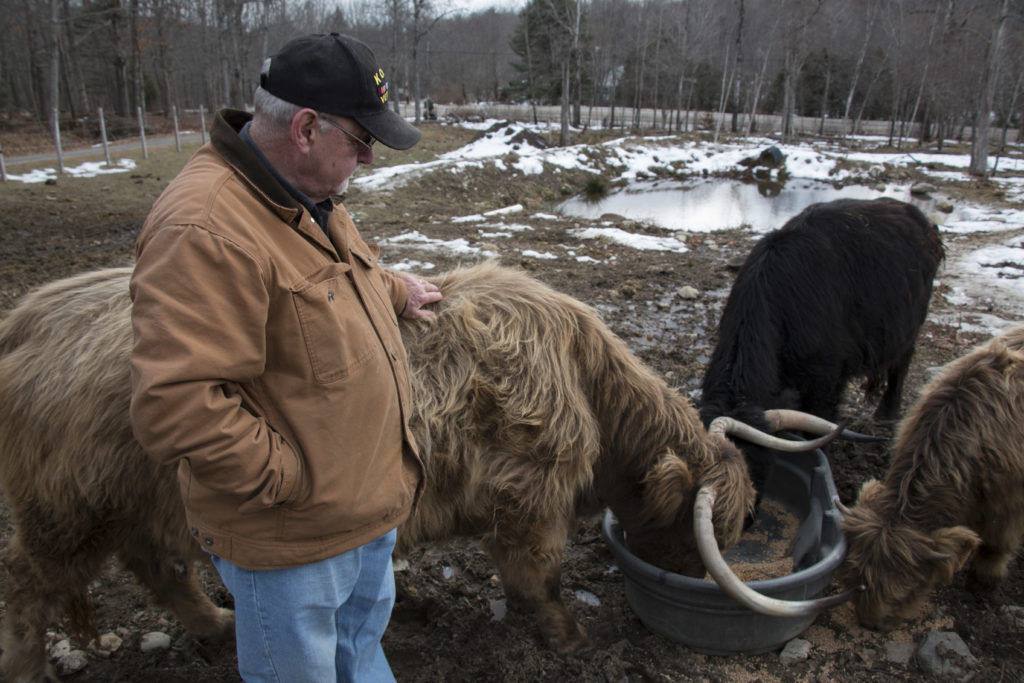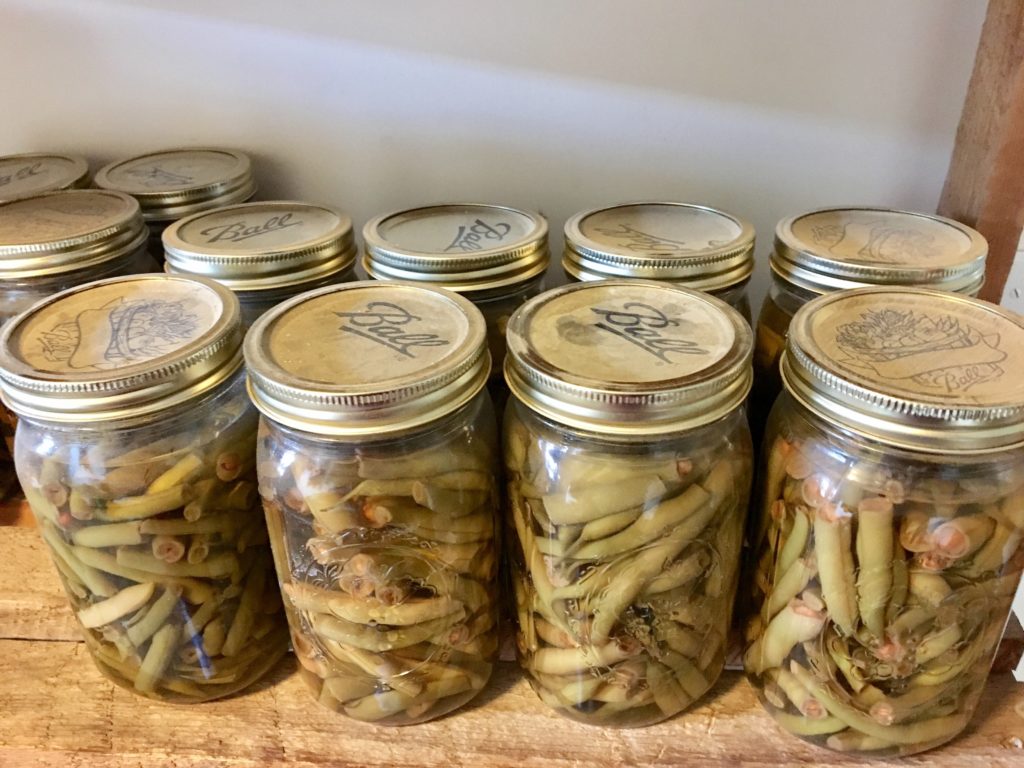Essential skills for backyard farmers

Starting your own backyard farm can be intimidating, especially if you are new to the farming or homesteading lifestyle. When it comes to learning the essential skills for backyard farmers, you might not know where to begin.
Experts and educators agree that it is most important for aspiring backyard farmers to have an inquiring mind and an eagerness to learn.
“You need curiosity and a willingness to either lookup information or reach out to people who can help [you] find that information,” said Caleb Goossen, organic crop and conservation specialist at the Maine Organic Farmers and Gardeners Association.
Beyond an enthusiastic, open mind, backyard farmers and homesteaders will need to develop some concrete skills in order to be successful. Here are 12 essential skills for backyard farmers.
Garden plot preparation
No matter your skill level or the size of your farm, the first step to sowing crops is preparing your plot.
“In our beginner courses, we teach a brief overview of skill sets that are essential to raise food,” said Marissa Lankes, coordinator for the sustainable agriculture program at Austin Community College in Austin, Texas. “[The first is] bed preparation: knowing what to do to get the ground ready for a garden, and how you’re going to prepare a site initially for a garden or a farm.”
Part of proper bed preparation is knowing your land — particularly, how much sunlight each part of your property receives over the course of a day.
“[Backyard farmers] should know how much sun their garden gets,” said Joan James, co-founder of A Back Yard Farm, a company that installs backyard farms in the Twin Cities metropolitan area of Minnesota. “You need to have at least seven hours to have a productive vegetable garden.”
The most important part of setting your garden up for success, however, is proper soil care.
“[Backyard farmers] need to know how to take care of soil, first and foremost,” said Kalita Todd, Farm Institute education coordinator at Sierra Harvest in Nevada City, California. “Unless you have good healthy soil, you won’t have healthy plants.”
Todd said that having a good source of compost and knowing how to read a soil test to properly amend your soil are key.
“You can really cause harm by overfeeding the soil, thinking you’re doing the right thing,” she said.
Todd said that do-it-yourself composing, however, is not a necessary skill for backyard farmers. In fact, depending on the size of your land, she recommended finding a more reliable source for quality compost to supplement the compost you prepare in your kitchen.
“The thing about making compost on a small scale is it needs to be turned,” Todd said. “I’m on five acres, and I have never made a good batch of compost until I got a tractor. People have to be willing to do the turning, or it’s not worthwhile.”
Climate-appropriate crop selection
Picking the right crops for your garden and developing your “green thumb” is a matter of research and experience.
First, figure out what you can grow in your area. A good place to start is determining your hardiness zone.
“Take that zone and to find out what grows well in your zone,” James said.
James recommended starting with the information available in the seed catalogs or on the back of seed packets.
“Do some research about those vegetables,” James said. “You can pick up any seed catalog, open to carrots, and it will tell you what the best growing system is and what pests bother them.”
From there, select your crops and create a planting calendar, outlining when your plants need to be transplanted into the ground and when they should be ready to harvest.
Weed and pest identification
When scattered amongst growing crops, weeds can be confusing or difficult to identify. Still, Goossen said it is a helpful skill to know the common weeds in your area.
“The most common ones are always good to know because they are at risk of setting seed and becoming a larger problem,” Goossen said.

Goosen said backyard farmers can also focus on their organizational skills. If you know exactly where you planted your crops, he explained, you can remove any invaders when they appear.
To remove weeds, loosen the soil around it and pull the whole plant out of the soil from the main root.
Knowing common garden pests is helpful, too.
“You need to be able to be comfortable around insects,” James said. “You may have to dig tiny grubs and maggots out of the vine.”
Watering
Knowing how you will access water and how frequently you should water your garden is an essential skill for backyard farmers.
“Water is often the limiting factor for a lot of people who are inexperienced,” Goossen said.
In general, plants should be thoroughly watered — so that the soil is damp at least six inches deep, which you can test with your finger — between two to three times a week, perhaps slightly more in dry conditions.
Watering is especially important in dry or drought-prone areas of the United States, so additional skills — including irrigation system design — may be needed depending on where you live.
“I think people should be able to design an irrigation system,” Lankes said. “We live in Texas. If you don’t have an irrigation system, you’re not going to have a garden without it.”
Observational skills
Backyard farmers should be equipped with observational skills, both to spot problems early on and to note successes as they arise so they can repeat them in the years to come.
“Paying attention is a really big piece,” James said. “You need to be out in the yard at least twice a week for at least an hour.”

“There’s an old saying that the best fertilizer is the farmer’s footsteps,” Goossen added. “Getting out and seeing what’s happening is among the most important parts in terms of preventing issues.”
Keeping a garden journal is a great way to keep track of all your observations from year to year.
“It’s really important to take notes,” Todd said. “When was I able to plant my garlic, and when did I harvest it? What was that variety that didn’t take off at all? Things like that make a huge difference in not making the same mistakes over and over.”
James also said to make sure you have a friend to look after your plants if you are going to be away for an extended period of time.
“[Growing] a vegetable garden is like getting a puppy,” James said. “If you go on vacation, you’re not going to let your puppy run around.”
Farm tool handling skills
Besides equipping themselves with a basic toolbox, backyard farmers and homesteaders should have a few garden hand tools that they know how to use in their plots. Depending on the size of your land, you may want to learn how to operate farm machinery as well.
“A baseline knowledge of how to use hand tools — broad forks, hoes and hori horis [a multipurpose soil knife for weeding and digging] — [plus] some mechanical knowledge and a little bit of experience with a tractor is helpful,” Lankes said. “It always depends from situation to situation.”
If you are shying away from mechanization on your backyard farm, you may need to familiarize yourself with gardening methods like permaculture.

Livestock care and handling skills
If you are going to add livestock to your backyard farm, experts agree that you should know how to take care of them.
“Having an animal is like having a child,” Todd said. “You have to be concerned about their care, their water, their food and their health. It’s not to be done lightly.”
Goossen suggested seeking formal education, perhaps in the form of a class at your local cooperative extension, or at the very least doing your own research before buying animals.
“If you are planning on buying animals, you definitely need to have some background education about the needs that livestock as well as livestock handling so that they’re not at risk of injuring yourself or accidentally harming the livestock,” Goossen said.
Budgeting
Whether you are managing a hobby farm or growing crops to make money, knowing how to keep a budget is essential. You can make small efforts to save money on gardening supplies or save money around your farm or homestead in general.
“Marketing, enterprise budgets and making a business plan become really important,” Lankes said. “Even if you’re not selling products, that might be good to know.”
Goossen also recommended that backyard farmers develop skills with financial record keeping and budgeting.
“[You can] use that to help you weigh decisions [on your backyard farm],” he explained.
Physical fitness and flexibility
Flexibility and physical fitness are important skills for safe backyard farming.
To start, James recommended that backyard farmers are able to lift 40 pounds comfortably. Ideally, backyard farmers should also be flexible enough to bend over comfortably and work long hours outside.
“There’s a basic level of physical fitness,” Lankes said. “You have to have to work long hours out there. That has a lot to do with being honest with yourself about what kind of time and commitment you want to put in.”
You can, however, design your backyard farm to suit your needs.
“There’s a certain amount of dexterity that’s required, but you can work around that,” Lankes said. “Older folks that maybe can’t reach down so far can have a raised bed.”
Many cooperative extensions and organizations offer body smart gardening courses for aspiring backyard farmers with limited mobility, strength and flexibility.
“Folks with limited mobility can still enjoy that agricultural lifestyle,” Goossen said. “It’s about knowing how to use one’s body appropriately, like using your own leverage and bending with your knees so you’re not straining yourself. It’s always going to pay dividends in a lifetime of agricultural work.”
Seasonal cooking
Learning how to cook with the produce that you have available each season is an excellent skill to have as a backyard farmer.
“[You] need to learn how to cook again,” James said. “When people are cooking in the kitchen, they get a recipe, go to the store and buy ingredients. People don’t know how to go out into the garden, harvest what’s in season and make a meal.”
Taking a cooking class — or just experimenting in your own kitchen and keeping a record of your successes — is a good way to develop your cooking skills.
“It can be tricky to get used to cooking in season and knowing how to handle the large quantity [of produce] that arrives when things are all coming in at once,” Goossen said. “It certainly does make life a lot more enjoyable when someone in the household is good at turning whatever you’re growing into delicious meals.”

Food storage and preservation
If you have a bountiful harvest, you likely will not be able to cook everything that comes from your backyard farm before it starts to spoil. Whether you freeze, can or ferment your food, backyard farmers are going to need to know how to store their vegetables, fruits and herbs.
“The thing I tell people is that as much time they spend harvesting, they will spend equal time in the kitchen putting food away correctly,” James said. “It’s really straightforward and easy to do. We freeze more than three-quarters of our stuff, and we can about six to ten different things that we like.”
You can take a class on pickling vegetables or drying herbs, but Goossen said that for food preservation, books are a great place to start.
“[Food storage and preservation] is one area where there’s a lot of really good books,” Goossen said. “I have an old book I love called ‘Putting Food By,’ [by Janet Greene]. There are lots of other great books about root cellaring and lacto-fermenting vegetables.”
Asking the right people the right questions
No matter how much you prepare for backyard farming, you will always have questions as new problems arise.
“You need to find a resource to answer your questions as you’re going along,” James said. “You’ll make 1,500 mistakes. If you have a good resource, that’s going to cut down on the amount of errors you’ll have.”
James suggested asking your farming neighbors or finding a master gardener near you that can address your gardening questions. Goossen also recommended checking with you local cooperative extensions, farming non-profits, the local branch of your National Resource Conservation Service and your area’s soil and water conservation district.
With some basic knowledge access to informative resources and a willingness to learn, you will have all the skills you need to be a successful backyard farmer.
